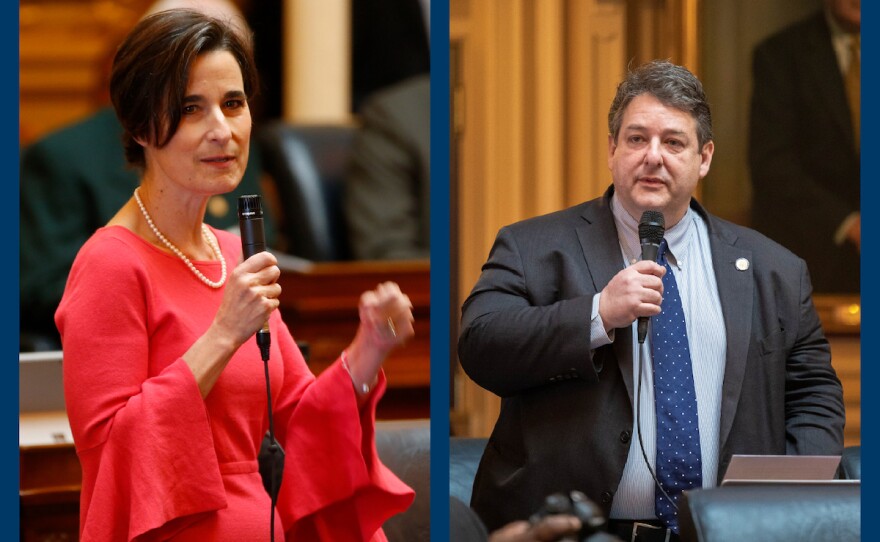A law allowing undocumented students to receive in-state financial aid at certain colleges in Virginia takes effect Monday. Students with a wide range of immigration statuses — including those with pending refugee or asylum applications — will also be eligible for the funds.
The Virginia Alternative State Aid Application went live in January, and as of Friday morning, 836 applications have been completed. The majority of applicants have applied to colleges in Northern Virginia, according to Lee Andes, associate director for financial aid at the State Council of Higher Education for Virginia.
“Somewhere around two-thirds of [836 people] I would expect will receive some sort of a state award this fall,” said Andes.
Even though funds initially earmarked for this purpose didn’t make it into the state budget earlier this year, Andes said that doesn’t mean colleges won’t be able to issue financial aid awards to students who apply.
“I’ve heard from over half of the institutions that they are still able to make normal awards to those who apply to the VASA application,” Andes said.
Karen Vallejos — executive director for the Dream Project, a nonprofit that helps students with varying immigration statuses access higher education — has been helping a number of students fill out the VASA form online. She said the process hasn’t been entirely smooth and hopes it will get easier in years to come.
“A lot of students have been receiving notifications from their universities that they will be eligible to get certain financial aid,” Vallejos said. “So, we're happy with that.”
She said she appreciates colleges that have posted additional details about the application process, as well as contact information for a specific point person to whom students can direct questions and requests for technical assistance. Vallejos urged those that haven’t done so to take note.
Vallejos also said families appreciated that the VASA application was available in Spanish, but she had to have an intern translate additional information about the program into Spanish.
“And that's really where you get the very specific guidance on how to answer questions about whether you're a resident, what to put in for this box and that box,” Vallejos said.
Vallejos emphasized how important state aid is for students, especially since undocumented students aren’t eligible to receive federal financial aid.
“Most of the students that we see at the Dream Project I know want to stay in Virginia,” Vallejos said. “A lot of them do get into out-of-state schools. But because of proximity to home and affordability, they want to stay in Virginia. They consider themselves Virginians.”
She said the students are looking to study for jobs the commonwealth needs.
“Statistically, our students are mostly interested in STEM, biology, nursing and education, which are the areas that Virginia needs the most,” she said.
Simon Sandoval-Moshenberg, legal director of the immigrant advocacy program at the Legal Aid Justice Center, pointed out that this financial aid isn’t just for undocumented students.
“There's tons of students who, for example, have pending applications for asylum and refugee status,” Sandoval-Moshenberg said. “These cases famously can take 5, 7, 9 years [for applications to be resolved].”
Sandoval-Moshenberg also pointed to Afghan and Ukrainian evacuees, who are brought to the United States through humanitarian parole, a process that allows them to come into the country for a limited period of time in order to apply for a different type of legal status, like asylum.
Sookyung Oh, director of the Hamkae Center, worked with the Virginia Coalition for Immigrant Rights to advocate for the legislation. But she said some of the students she’s worked with are not eligible for the program because they didn’t graduate high school in Virginia.
“We worked with some Korean American youth who did go to high school for two years in Virginia. But then in their final year, their senior year, the parents moved to Maryland,” Oh said.
A separate law passed in 2020 extended in-state tuition to students who attended at least two years of high school in Virginia and graduated from a Virginia school or equivalent on or after July 1, 2008.
According to SCHEV, it’s too late for students to apply for aid through VASA for this fall at four-year colleges. But Andes said students planning on attending community college this fall can still apply.
“We did ask institutions to be more flexible with deadlines for these students,” Andes said. “Community colleges operate on more of a rolling enrollment. And so their awarding of aid is more flexible.”
A new application for the ’23-’24 award year is scheduled to open Oct. 1.



